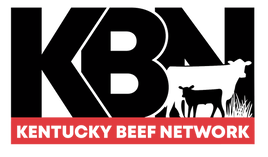Animal Management
Animal Management
Providing Water for Beef in Rotational Grazing Systems with Tire Waterers
Despite its importance, water is often the most poorly addressed component of animal nutrition on the farm. It is essential that livestock have easy access to plentiful, clean water within every paddock of a rotational grazing system to realize maximum efficiency and production.
Winter Tips and Reminders
The winter is a time of adaptation for farmers in Kentucky. We have to change the way we manage our livestock in order to sustain the animals as well as preserve our pastures for the coming spring. As forage becomes less available throughout the months of December, January, and February, supplemental feed is the main alternative for most farmers.
When to Start Feeding Hay
When should I start feeding hay to my beef cows? This seems like a simple question with a simple answer. However, as with many questions, there often is not a single perfect answer. Being an academic, I have to justify my existence by taking a simple question and making it complex, right?
Winter Watering of Livestock
As daily temperatures start to decline, most producers begin to focus on delivering stored forages to their livestock. Often, at this time the thought of an animal’s water needs are discounted. However, water requirements of livestock are critical to maintain optimum animal performance.
Weaning Calves on Pasture
Beef calves often experience stress during the time of weaning, and limiting this stress can help daily gain. Four main types of stress affect calves: physical, environmental, nutritional, and social. These issues can be avoided or at least minimized with proper calf weaning.
Fly Control in Pastures
Flies are one of the most difficult pests to manage and, although they cannot be totally controlled, it is possible to reduce populations and irritation to livestock. Flies not only cause irritation, but can carry and spread diseases, such as mastitis, and infections and can cause economic losses due to reduced gains and performance.
Limited Water Access
Providing cattle with clean water is vital in any farming operation. How that water is provided varies from farm to farm. One can water cattle using a city/county water source or use natural sources found on the farm. In Kentucky, ponds and streams can be used to effectively water cattle.
Trace Minerals for Beef Cattle
Grazing livestock require many different nutrients to support growth, milk production, and body tissue maintenance. Often minerals are separated into two categories. The minerals that are required in relatively large amounts are called major or macro minerals.
The Face Fly
Horn flies and face flies are the key pasture flies that Kentucky cattle producers face each year. Both provide unique control challenges, but the face fly is the more difficult one to manage. There are two main reasons: the small amount of time spent on animals and hard-to-treat feeding sites.
Planning for Pasture Fly Control
Here are a few things to consider as you weigh the options for pasture flies: face fly and horn fly control. What is your key pest? A key pest is one that is there every year and, when it is bad, causes significant losses in reduced gains and extra expense in time and effort.


